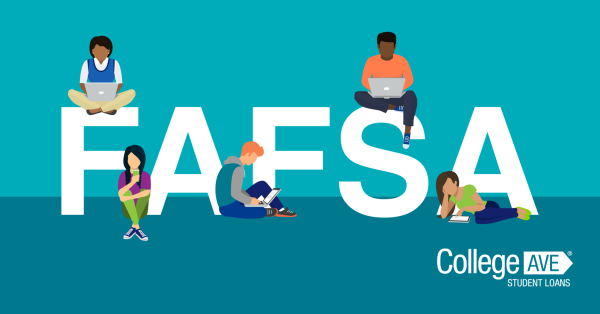An Unhealthy Normalization of Overworking

As a sudden rise of an epidemic of student stress, overworking and mental health issues, students continue to put on more responsibility than ever before. With students taking IB [international baccalaureate], AP [advance placement], or honor courses and with jobs, homework, and even having the responsibility of taking care of other family members, students just might break. The question then becomes, is allowing student’s lives to become more overcrowded even morally correct?
“I am not only an IB diploma student, but I also horseback ride and play piano all competitively,” said junior Justine Lyons-Fang. “I have a hard time trying to balance all of my activities, this usually ends in burnout a lot quicker than usual. There is a sense of constantly being overwhelmed by all the activities that I do.”
The current mental health epidemic continues to rise, anxiety and depression is so much more common in teenagers than ever before. With anxiety and depression comes being overwhelmed about doing so much, in such little time, with the extra things students may do. But with this sudden rise, many are affected by the pressure to get good grades, have social lives and still take care of their personal lives.
“I feel like students have too much pressure on them to be perfect both from family and from school,” said sophomore Aubrey Blight. “I also think that the amount of work we get is excessive and adds a lot of stress.”
With high level classes, extracurriculars, sports and political and social involvements, it is clear that the landscape of education and the mindset of the people within it is quickly growing and changing, as student care is left behind. Addressing the culture that put students to be so overloaded is so important
“It makes me really angry and upset that lack of sleep and overworking ourselves has become so normalized,” said junior Felipe Dominguez. “Mainly because of the fact that those things tend to decrease and harm emotional well-being and mental health, so I wish that it wasn’t so normalized.”
Coupled with these new academic changes are cultural and social ones that prize students who push themselves with academically rigorous courses. With these courses that students are recommended to take, students are left with less time for relaxation and self care and more time spent preparing for tests, exams, and projects.
“My hard classes put a lot of stress on me to be perfect,” Blight said. “I find that a lot of the time I can’t hang out with my friends because I have school work or I have to study which messes up my social and mental health.”
Not only do many students take challenging courses, but most have jobs and sports that are such a huge commitment to them, but what causes them to not have enough time just to do a page of homework.
“I have a job where I work multiple days a week, as well as go to multiple clubs and other extracurriculars,” Dominguez said. “I like being busy to an extent but sometimes it can become extremely hard trying to balance my emotional, physical, and social health.”
As well with the overwhelming responsibilities one may have, some students may even get a load of pressure from their parents. It is highly normalized for one’s parents to continue to pry them to get good grades and get into a good college. The pressure causes students to get the desired validation from parents. Lyons-Fang is one of plenty of students whose parents want them to succeed.
“My parents have the expectations of me getting into an Ivy League school or at least a ranking below Ivy league,” Lyons-Fang said. “They are also hoping that I’m able to get a scholarship either academically or in sports. I think that my parents’ expectations of me have been normalized among most teenagers in IB DP, so they aren’t really that high in perspective.”
Overworking teenagers are so normalized that talking to one another about the amount of time spent doing that one assignment and the loss of sleep one has got as a result has become a usual part of their life. Since students complain and sometimes exaggerate the lack of sleep and overworking habits with their friends so much, they don’t even know what they are doing wrong.
“It is so common in teenagers to lack sleep and overwork themselves,” Lyons-Fang said. “Sometimes reasons can vary but it’s difficult having it so normalized because in some cases it has become a competition to see who can be the most burnt out. It’s almost like if you aren’t overworked you aren’t working hard enough.”
The numerous times where people continue to compare themselves with the time they slept or the averages they have in class is shocking. Even though it is nowhere near a competition of who has it worse, the sense of satisfaction when you tell someone you struggled more than them is the root to invalidation and more mental health issues.
“I am always comparing myself to others even if we are completely different people in different classes. I find it hard to separate myself from others achievements and goals,” Blight said. “It makes me feel less about myself, not because the other person might be doing better than me, but that I can’t be happy with how good I’m already doing.”
With many students it is so common to compare themselves to other students. They tend to think that they “aren’t good enough” or “not as good as the person next to them” if they aren’t performing at the same level or higher level than another student. Putting that mindset onto themselves is what causes them to break.
“I really hate feeling ‘not good enough,’ or as if I’m not smart as everyone else, so I tend to push myself a lot,” Dominguez said. “I took hard classes in the sense that I don’t want to be seen any less than my friends.”
The best way to prevent struggles like these from becoming normalized is to take care of yourself. Participating in unhealthy activities does not mean you are working harder or that your achievements are more valid. Having a healthy and balanced lifestyle is what high school students should strive to achieve and the lack of it is not something to boast about.
In the future instead of agreeing and adding on to the comment of surrounding peers, ask yourself, Are my struggles really something to be proud of?







